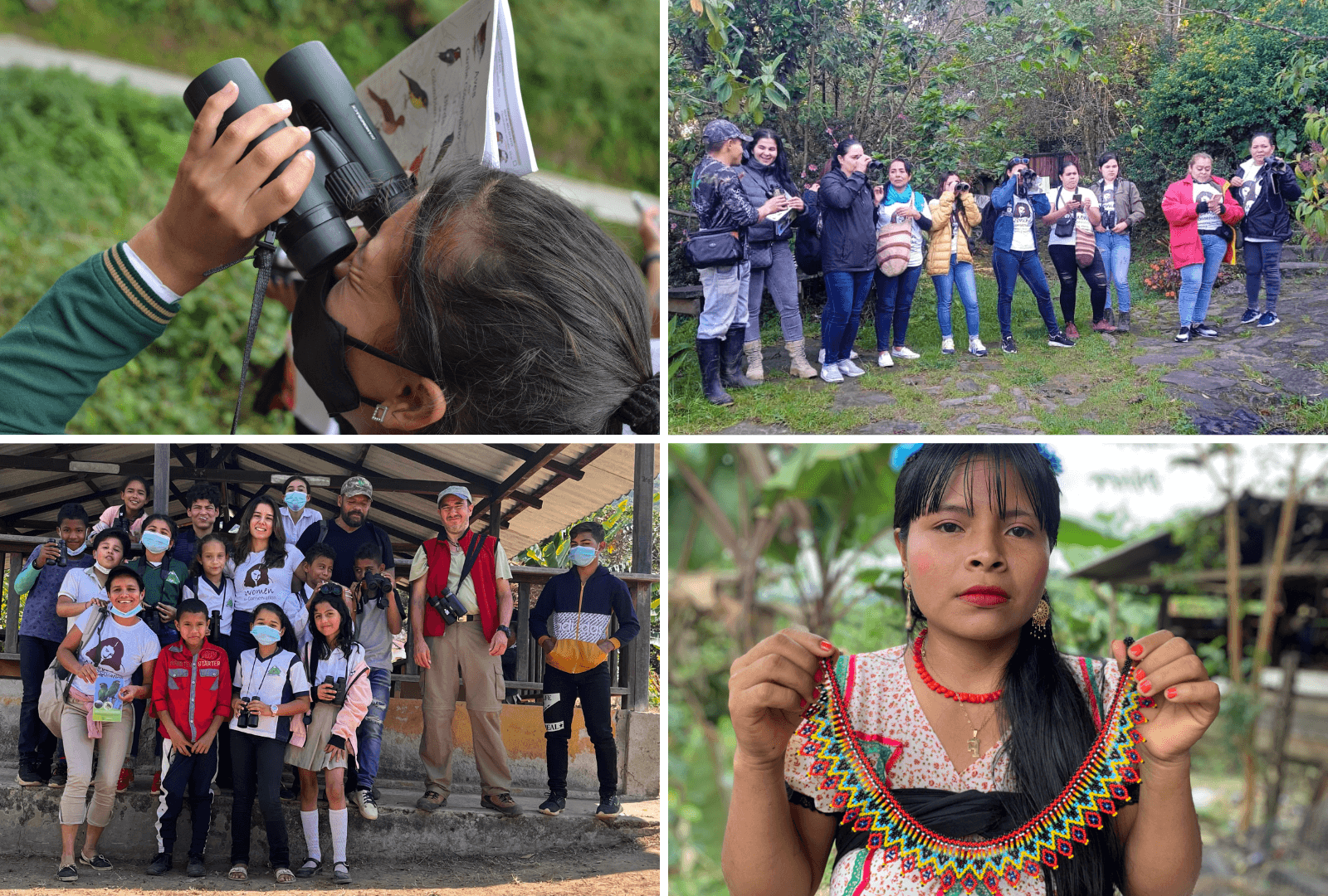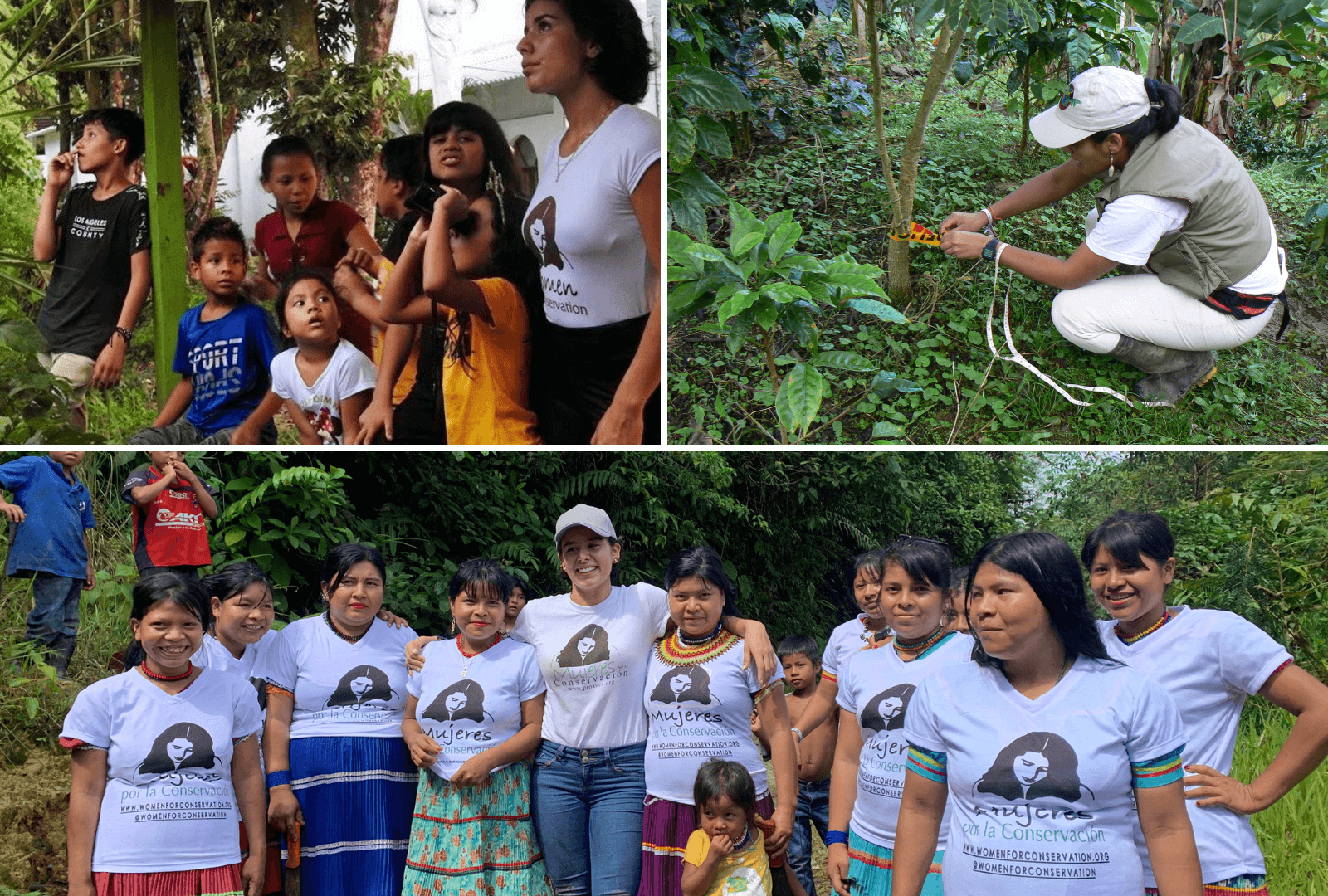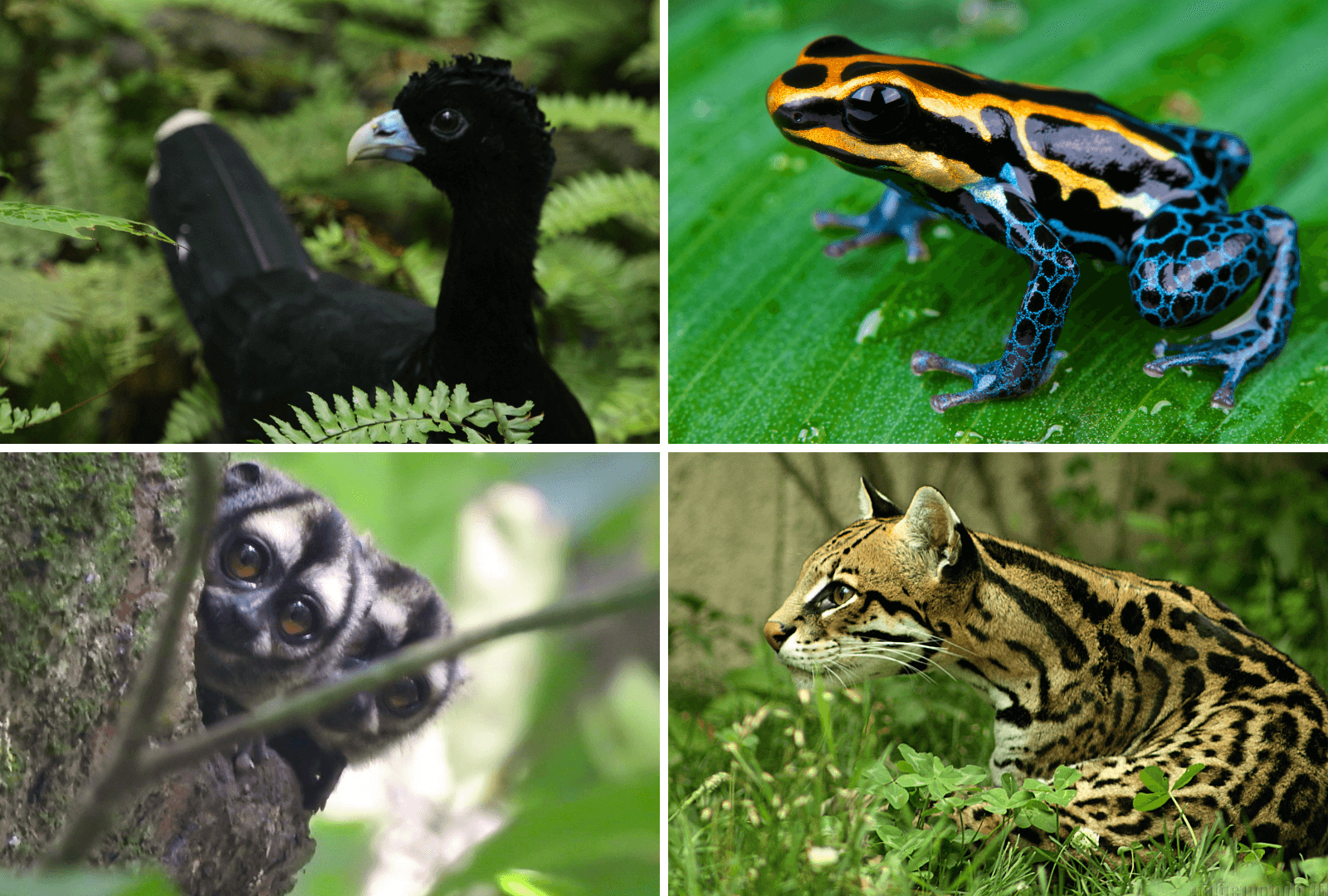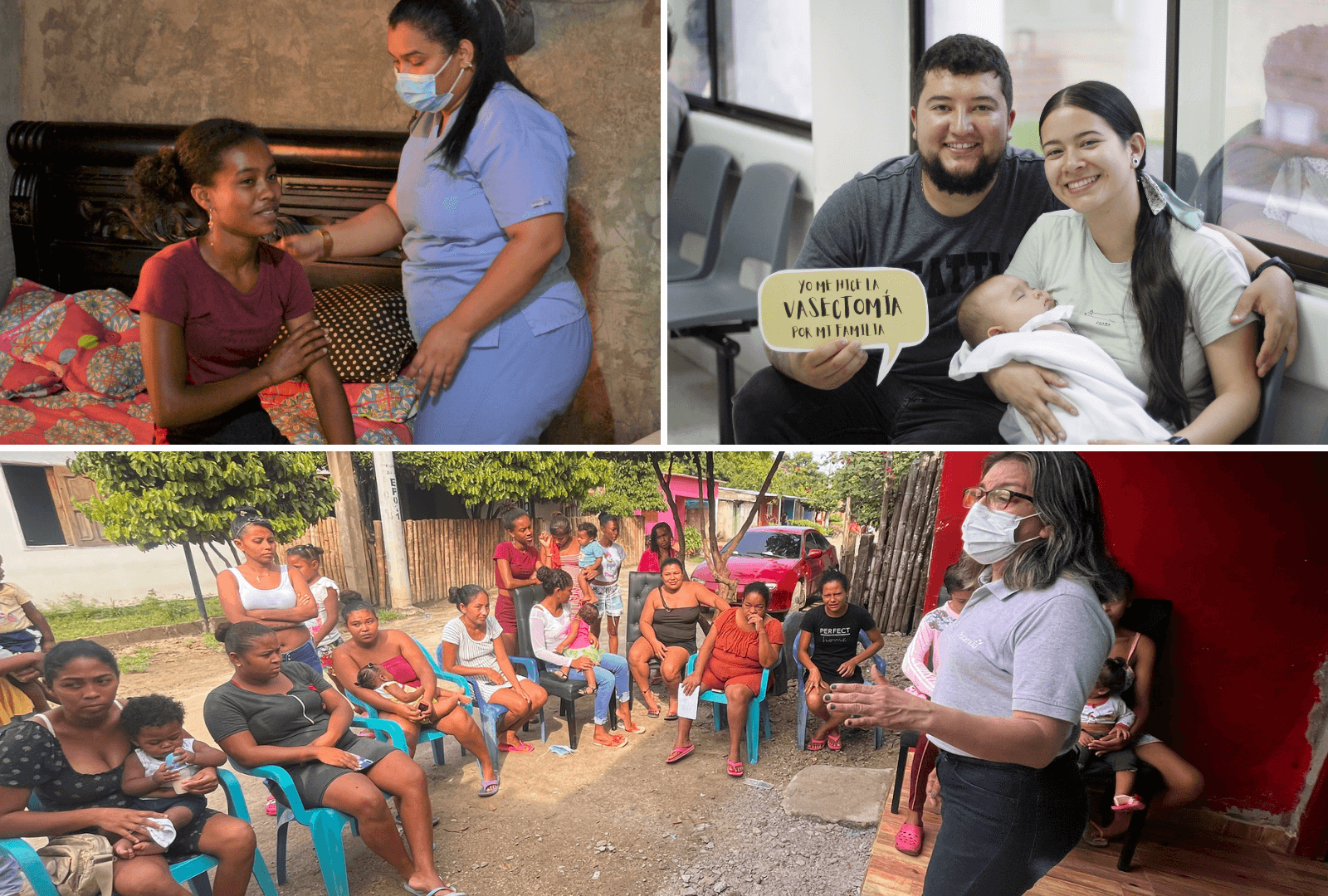
Women for Conservation has always strived to create a lasting impact—not just on the lives of women, but also on the health of our planet. As the climate crisis worsens, we are stepping up our efforts to protect and preserve the world’s most extraordinary habitats. We believe in the power of grassroots, community-led conservation and know that even small changes can have a dramatic impact on the environment. It’s going to take all of us working together to meet the challenges of this new era, and Women for Conservation is empowering communities with the tools they need to build climate resilience and help ecosystems thrive.
Protecting Forests and Wildlife Habitats
Colombia’s tropical forests help cool the planet by absorbing carbon dioxide from the atmosphere. They also serve as habitats for dozens of rare species found nowhere else on earth. But every year, forest fires and intensive agriculture are destroying tens of thousands of acres of native forests. As more forest is lost, our planet’s ability to soak up greenhouse gases diminishes.
While climate change is leading to the hotter, drier conditions that make fires worse, almost all of these fires are started by people. When communities rely on destructive land use practices, like ranching and logging, they often use fire to clear dry brush and tree stumps. If we can provide sustainable alternatives to intensive land use, then we can make meaningful strides towards reducing the number of fires.

Women for Conservation teaches women and their communities to live in harmony with nature and preserve the forests. We encourage families to practice traditional, small-scale agriculture that respects the delicate forest ecosystem. Through community-led workshops, we provide education in ecology and conservation and train women to work as park rangers or nature guides. We also help families transition to sustainable livelihoods like eco-tourism, hospitality, and traditional arts and crafts. The women we work with embrace this opportunity to become champions for conservation, and they’re teaching the next generation to preserve the forests.
Our Forest Guardians program helps indigenous communities protect their land from settlers and urban development. We also support conservation projects like reforestation and native plant restoration, which can prevent erosion and landslides. Local Women for Conservation leader Ciria Torres reflected on the importance of preserving forests during the recent flooding in the community of Puerto Pinzon:
After evacuating to higher ground, we were watching the river rise, and the biggest trees were able to stop everything from being swept away.Thank God for the nearby nature reserves, because if it weren’t for those trees holding everything in place, our city would have been completely washed away.
By helping rural communities reduce stress on natural resources, Women for Conservation is working to preserve thousands of acres of sensitive habitats. Every acre of forest saved represents another small victory in fighting climate change!

Protecting Biodiversity
We are in the midst of a global extinction crisis, and climate change is making it worse. Extreme weather is disrupting ecosystems and making it harder for endangered species to survive. Biodiversity loss may itself worsen the effects of climate change, as changes to plant and animal populations can alter the natural ecosystem cycles that help regulate greenhouse gases in our atmosphere.
Women for Conservation works at 11 nature reserves throughout Colombia to protect threatened plants and animals. These reserves are biodiversity hotspots, with hundreds of rare birds, mammals and amphibians sighted each year.
Women in our conservation training program not only learn about local ecology and natural resource management, but they are also taught to track and monitor critically threatened species and upload data to international databases, such as eBird and iNaturalist. We provide women with the technical skills and equipment they need to perform wildlife patrols and have created community monitoring groups to encourage local residents to record and report sightings of endangered species.
Our young guides program teaches students from local schools how to track wildlife and gets young people excited about working in conservation.

Family Planning and Living Sustainably
Family planning has a positive environmental impact on rural communities. When women can choose when they want to have children, young people can pursue education or careers in conservation, start sustainable businesses, and provide for their families through small-scale agriculture. Women have more freedom to work outside the home, and the extra income reduces poverty and increases school attendance rates. Communities that rely on sustainable economic activities like eco-tourism and traditional arts and crafts are also less likely to engage in destructive land-use practices.
Women for Conservation hosts community workshops on reproductive healthcare and provides family planning services to women and girls. We empower women in a respectful way, and we’ve had an extraordinary response to our family planning program in rural areas. Many of the women express great joy and relief knowing they can plan for a stable, successful future and become champions for climate resilience in their communities. Fighting climate change while helping communities access reproductive healthcare and build climate resilience is an important aspect of our holistic work.

